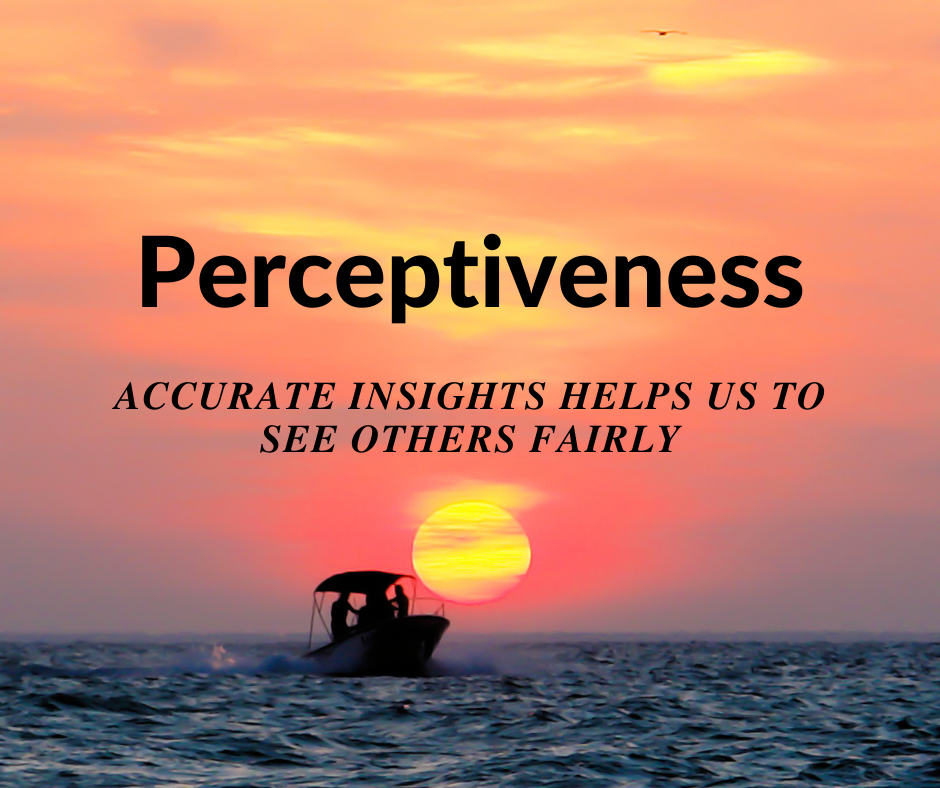
Perceptiveness in Family Life
Areas of Family Life Where Perceptiveness is Critical:
1. Emotional Support:
Why It’s Critical: Children communicate their emotional needs indirectly through behavior changes, withdrawal, or mood swings. Perceptiveness allows parents to recognize these signs early and provide emotional support.
How to Apply It: A parent can apply perceptiveness by observing their child’s behavior closely, asking gentle questions, and offering a safe space for open communication. This helps children feel understood and supported.
2. Conflict Resolution:
Why It’s Critical: Family conflicts can arise from misunderstandings or unmet needs. Perceptiveness enables parents to identify underlying issues that might not be immediately obvious.
How to Apply It: During a disagreement, a perceptive parent looks beyond the surface arguments to understand the emotions driving the conflict. By addressing these root causes, they can help resolve issues more effectively and maintain harmony.
3. Education and Development:
Why It’s Critical: Each child has unique learning styles and developmental needs. Perceptiveness helps parents recognize when a child may be struggling academically or emotionally and requires additional support or a different approach.
How to Apply It: Parents can stay attuned to their child’s progress by regularly engaging with them about schoolwork, noticing signs of frustration or boredom, and being open to adjusting routines or seeking extra help when needed.
4. Physical Health:
Why It’s Critical: Subtle changes in a child’s physical health can often be early indicators of illness or stress. A perceptive parent can notice these changes and take appropriate action.
How to Apply It: By paying attention to changes in sleep patterns, appetite, or energy levels, a parent can quickly identify when something might be wrong and seek medical advice or provide the necessary care.
5. Social Relationships:
Why It’s Critical: Children’s peer interactions can significantly impact their self-esteem and well-being. Perceptiveness allows parents to notice when a child has difficulty with friendships or social dynamics.
How to Apply It: A perceptive parent regularly checks in with their child about their social life, listens carefully to their concerns, and offers guidance on navigating challenging situations with friends.
Applying Perceptiveness in Parenting:
1. Active Listening: Be fully present when your child speaks. This involves hearing their words and paying attention to tone, body language, and what’s left unsaid. It shows that you value their feelings and are there to support them.
2. Observation: Regularly observe your child’s behavior in different settings. Notice patterns or changes that might indicate underlying issues, such as stress or anxiety, and address them calmly and with empathy.
3. Empathy: Put yourself in your child’s shoes to better understand their emotions. This will help you respond sensitively to their needs, fostering a deeper emotional connection.
4. Consistent Check-Ins: Make it a habit to check in with your child regularly, not just when something seems wrong. This builds trust and makes it easier for them to open up when they need help.
5. Modeling Perceptiveness: Show your child how to be perceptive by being attentive to the needs of others in the family. This helps maintain a supportive environment and teaches them the importance of being aware of the feelings of those around them.
Balancing Perceptiveness with Humility and Wisdom:
- Avoiding Over-Intervention: Perceptiveness without humility and wisdom can lead to over-intervention, where a parent might constantly step in to solve every problem they perceive. Humility reminds us that our children can handle certain situations independently, while wisdom helps us decide when our involvement is necessary and beneficial.
- Promoting Healthy Independence: A balanced approach encourages children to express their emotions and seek help when needed but also allows them space to grow and learn from their experiences. Humility helps us respect our children’s autonomy, while wisdom ensures we provide guidance that empowers them.
- Fostering Mutual Respect: When parents combine perceptiveness with humility and wisdom, they create an environment of mutual respect. Children learn that their feelings are valued but also understand the importance of developing their judgment and coping mechanisms. This balance strengthens the parent-child relationship and supports the child’s overall development.
Integrating perceptiveness into daily parenting creates a nurturing environment where children feel safe, understood, and valued. This ultimately leads to a stronger and more resilient family unit. Humility and wisdom ensure that the virtue of perceptiveness in parenting is applied thoughtfully and respectfully.
Humility keeps us grounded and open to learning from our children, while wisdom guides us to make decisions that best support their growth and well-being. These virtues create a nurturing environment where children thrive and feel seen, respected, and empowered.
Joe is a husband, father, grandfather, author, speaker, educator, course creator, and parent/family coach.
He helps parents develop unity, find clarity, communicate, and develop consistency in their parenting with the Four C’s of Successful Families. You can find his work on social media.
In addition, the Four C’s newsletter is enjoyed by many as it encourages parents to self-care, build their relationships with their partners, and raise their children.
And he loves to golf!


